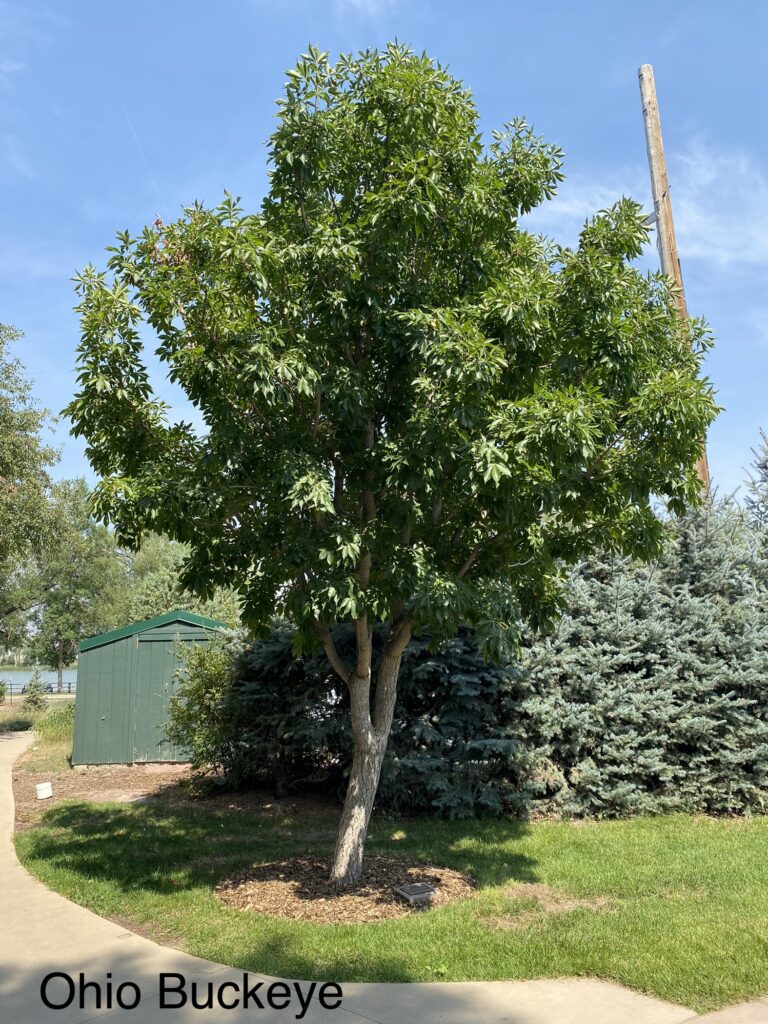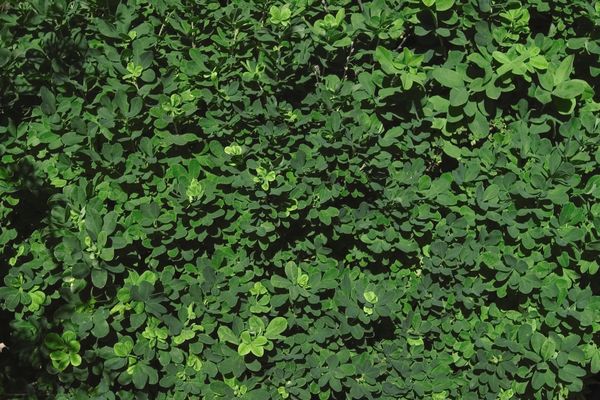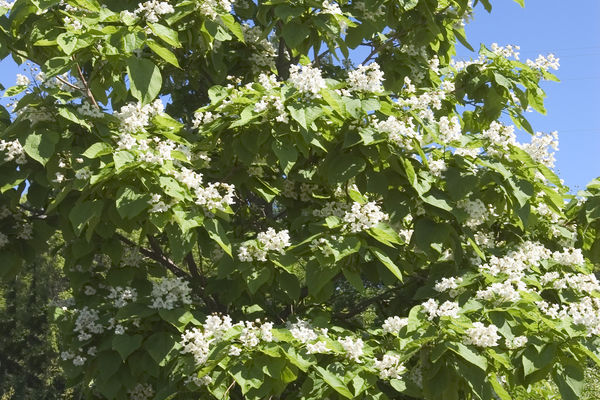In my view, one of the standout committees within the Laramie County Master Gardeners is the Bare Root Tree & Shrub Committee. This dedicated team curates a selection of trees and shrubs specifically for the annual Bare Root Tree & Shrub Fundraiser (closing April 20, 2024), emphasizing options that thrive in our local Laramie County climate. The offerings this year are truly exceptional, and this article will spotlight a couple of choices that have proven successful in our own landscape. For context, our home sits on a 5-acre lot in the county, surrounded by prairie. Our location is characterized by frequent high winds and an exposed landscape, which significantly influences the types of trees and shrubs that can thrive here. The trees and shrubs we have are all ones we personally planted.

Ohio Buckeye, Aesculus glabra
The Ohio Buckeye holds a special place in my heart because it is prolifically grown where my husband and I first crossed paths at The Ohio State University (GO BUCKEYES!). We were excited to see this species does well in Laramie County (several Ohio Buckeyes are planted at the Cheyenne Botanic Gardens and the High Plains Arboretum). Three years ago, we planted one of these magnificent trees alongside five Autumn Splendor Buckeye varieties. To our delight, the Ohio Buckeye consistently outperforms the Autumn Splendors in fruit (nut) production each year. We even managed to coax an Ohio Buckeye nut into germination and we’re trying for more this year. Nestled on a windy southern slope, its deep taproot ensures the tree remains steadfastly anchored, even in blustery conditions. Once established, it is drought-tolerant. As an ornamental tree, the Ohio Buckeye tree can reach heights of 30 to 40 feet and spreads just as wide. It is already budded-up and ready to attract pollinators with its springtime display of white-yellow panicle-shaped flowers.

Globe Peashrub, Caragana frutex ‘Globosa’
For those exploring permaculture options for their landscape, the Globe Peashrub deserves attention. This compact, neatly shaped shrub bears a resemblance to boxwood but will perform better in our climate. Hardy down to Zone 2 (withstanding temperatures as low as – 40˚F to – 50˚F), it thrives on minimal water once established. We planted three of these cuties on our southwestern sloped orchard, and even though it’s only mid-April, they’re already greening up—nourished solely by Mother Nature. What drew us to the Globe Peashrub is its remarkable nitrogen-fixing ability, enriching the soil not only for itself but also for the surrounding plants. And speaking of nitrogen-fixers, we’re going to try a new-to-us tree, the Northern Catalpa tree.

Northern Catalpa, Catalpa speciosa
While not yet part of our current landscape, the Northern Catalpa is an exciting addition we’ve chosen to acquire through this year’s fundraiser. My first encounter with this tree was in Fort Collins, Colorado, where it left a lasting impression. Its appearance is reminiscent of a tropical plant, boasting large, broad, heart-shaped leaves and striking white spring flowers. As a native North American species, it’s hardy down to Zone 4 (withstanding temperatures from – 20˚F to – 30˚F), with blooms expected May to June. Once established, the Northern Catalpa demonstrated drought-tolerance and adaptability to various soil types. Beyond aesthetics, this tree offers an additional benefit: it’s a nitrogen-fixing powerhouse, enriching the soil for our garden and neighboring plants. Furthermore, we plan to strategically position it to provide shade for western areas of our landscape during the late afternoon sun.
Don’t Miss Out on these amazing trees and shrubs! Our Bare Root Tree and Shrub Fundraiser closes April 20, 2024. Whether you’re a seasoned gardener or just starting out, these selections offer resiliency, beauty, and a touch of magic to your landscape. Visit our website to secure your choices! Thank you for supporting the Laramie County Master Gardeners. Together, we cultivate not only gardens but also a thriving community of green enthusiasts.
Additional Resources:
“Choosing flowering trees and shrubs for a Wyoming landscape,” University of Wyoming Barnyards & Backyards Magazine, Fall 2022.
“Landscaping: Recommended Trees for Wyoming,” Karen Panter & Chris Hilgert, UW Extension Publication B-1090R, December 2015.
“Landscaping: Recommended Shrubs for Wyoming,” Karen Panter & Chris Hilgert, UW Extension Publication B-1108R, December 2015.
